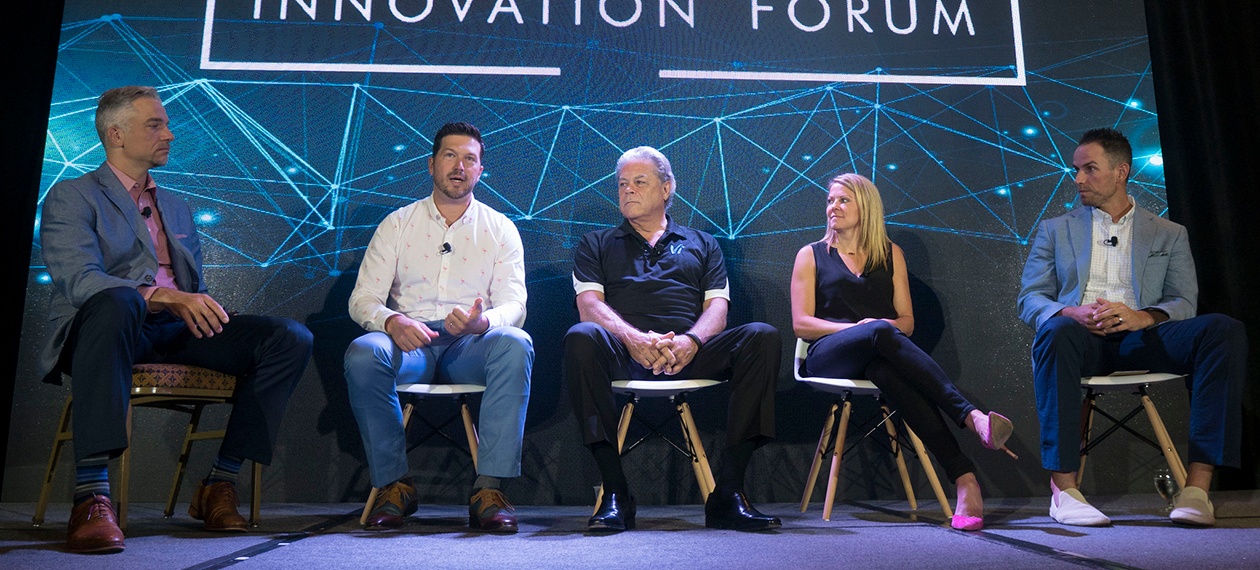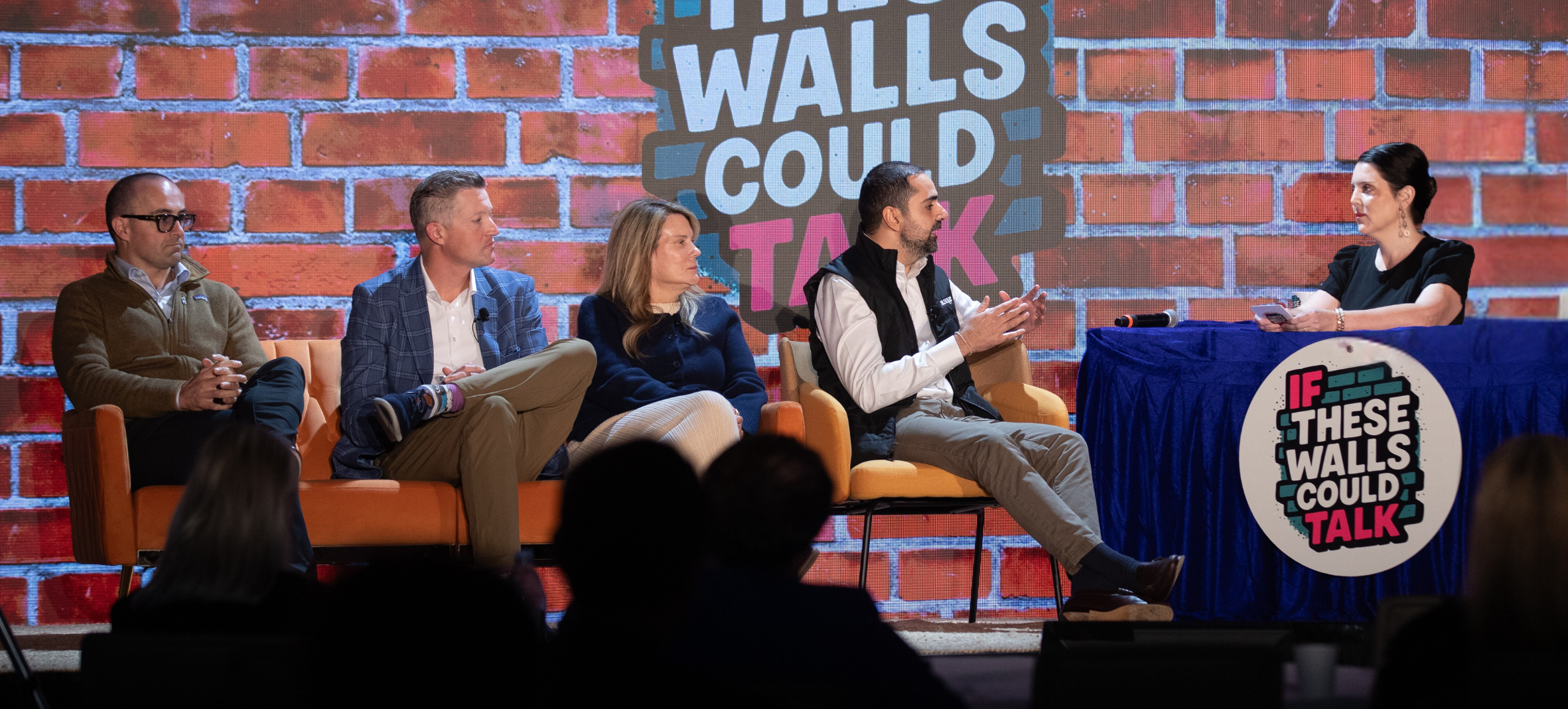Reward employees who go the extra mile, ban gossip, and let poor performers go after three months (rather than three years) were just a few of the straight-talk tips on leadership in senior living from an engaged leadership panel at the 2017 Senior Living Innovation Forum.
Chris Guay, President & CEO of Vitality Senior Living, moderated the discussion, which also touched on culture, recruitment and retention. The panel featured:
- Zeke Turner, Founder and CEO of Mainstreet
- Randy Richardson, President of Vi
- Lori Alford, Co-Founder of Avanti Senior Living
- Les Strech, President of Thrive Senior Living
Cultivating a Positive Corporate Culture
Reflecting on 30 years in the senior housing industry, Richardson said, “The people in our organization are the secret sauce."
For a number of years, Vi had a problem with turnover in certain positions. “To address that, we did a forensic study, from the hiring process through onboarding. We learned some things we weren’t doing right,” he said. “For one thing, the job description wasn’t crafted as it should have been.”
Now, Vi invests more in the hiring and onboarding process, which includes an intense 90-100 days to make sure new employees are acclimating to their work environment, understanding their job responsibilities and becoming a part of the company’s culture.

The result—turnover is down and their retention rate higher. “We were able to quickly determine whether new hires fit the culture, instead of waiting three years.”
Richardson added, “Overall, we strive to develop a culture of excellence. When things aren’t going well, we get people together to set an action plan.”
Women Empowering Women in Senior Care Organizations
Alford emphasizes the “female” aspect of Avanti. The majority of both its staff and residents are women. “Ours is a female organization. We sell to, serve and employ females. And our branding acts very feminine,” she said.
Avanti works with its staff to accommodate all aspects of their lives, to find balance. “We talk about the struggles we all face. We tell employees, ‘Don’t ever apologize for going to have lunch with your children or to see your child win an award,’” she said.
At the same time, Avanti’s culture is down on gossip.
“We don’t allow drama in our organization.''
''We’re female, we know it; we don’t bring women down in the organization.”

Many of Avanti’s residents are retired professional women who advanced to executive positions in fields dominated by men. Now, they serve as mentors to Avanti staff, especially the ambitious younger employees looking to advance, she said.
Listen to Your People
Strech joined Thrive four years ago. One of his first projects involved swapping his blazer for a T-shirt and sitting down with staffers one-on-one, encouraging them to speak honestly about their jobs.
“I interviewed every single care team worker. It took a couple of months,” he said, adding that he worked hard to make workers understand they could be honest with him. “We asked questions like, ‘What do we ask you to do that is a waste of time? and ‘What makes your heart come alive?’”
Today, when Thrive management holds strategy meetings, they always include an employee who will actually have to implement the changes being recommended, because, “We’re not smart enough to implement things in the absence of people who actually have to do them.”

Recruitment Challenges Senior Living Providers Face
All agreed that the pool of experienced senior living staff is shallow, with Turner emphasizing the importance of recruiting from other fields, on college campuses and even going into middle schools schools to educate young teens about the opportunities available in senior living.
“Front-end recruiting has to change dramatically. HR people say to us, ‘You can’t talk to junior high students,’ but if we’re going to be around in 10 years, and hiring college graduates, then why not be talking to 5th and 6th graders now,” Turner said.
Strech said Thrive has developed a comprehensive deck describing its corporate culture, which it uses to screen potential hires. “We give applicants the deck, tell them to take it home and spend six minutes reading it. If you don’t like the deck, you’re going to hate working here.”
Strengthening Retention
To keep stronger employees motivated and perhaps weed out underperformers, Avanti has begun having department heads deliver fact-based performance reports at peer-group meetings. “In front of their peers, they have to admit whether they’re meeting their goals or not. It keeps things fact-based,” she said.
Turner added that Mainstreet is actively working to increase turnover in some departments. “We’ve aired on the side of grace. We try not to let people go, but then you’re always overlooking people’s shortcomings. At one point we had less than 5% turnover. We have to seek to promote more turnover, not less.”
Low turnover and complacency often lead to “brownout,” with strong employees gradually becoming bored with the repetitive nature of their jobs. “They may be your top performers, but they will reach the point where they don’t want to do this anymore,” he said. “For us, we were building up a ticking time bomb where several people left all at once.”

Richardson believes strong recruitment and retention depend on more than just salary and benefits, but also training and promotion opportunities. “You have to invest in your people,” he said. “Our high retention rate is due to training up to be better managers and leaders.”
Finally, Alford stressed giving employees the space to be themselves on the job, rather than stressing conformity. “Our message is, ‘Just be you. Being you is perfect.’ It’s hard to come to work and be someone you’re not.”
Wages & Benefits
Responding to audience questions, the panel also dove into the topic of wages and benefits. The consensus was that senior living’s low pay grade must rise in the coming years and it may not be the disaster some predict.
“You can’t ignore the elephant in the room,” said Richardson, who asked his accounting team to create a simulation raising wages to $15 an hour and higher. “The economic impact was not as great as we feared.”
For his employees, a strong benefits package is “very, very important,” adding that it’s also essential to educate employees on how to optimize their benefits. “You also need to do one important thing—you need to tell people what their benefits are,” he said, singling out Vi’s 401(k) plan. “It was underused simply because employees didn’t understand it.”
Satisfying Investors, Incentivizing Staff
Representing a publicly traded company, Strech brought a unique perspective to the conversation. “We have investors. So our residents want one-to-one care ratios, while our investors want 37-to-1 care ratios. We have to meet somewhere in the middle.”
One creative solution—they eliminated one position and used those funds to incentivize employees to learn the life histories of all Thrive residents. Caregivers with the most knowledge could earn up to $300 more a month, while providing more thoughtful, personalized care.
Strech emphasized:
''My priority is that everyone who works for us have the ability to retire.''
For the full discussion, watch the video below. Enjoy!

Posted by
SLIF heads to Carlsbad!
The One of a Kind Retreat for Senior Housing Leaders.
May 31 - June 2, 2026 | Carlsbad, CA
Learn More









Comments